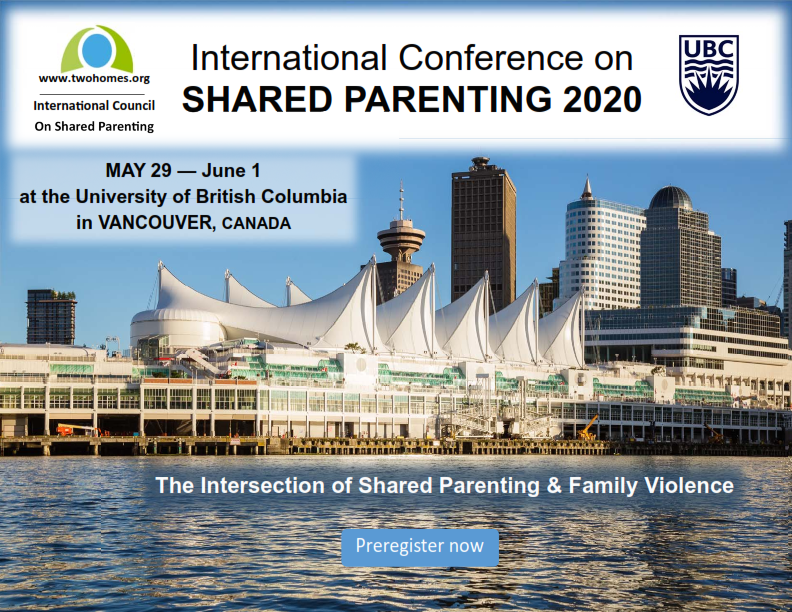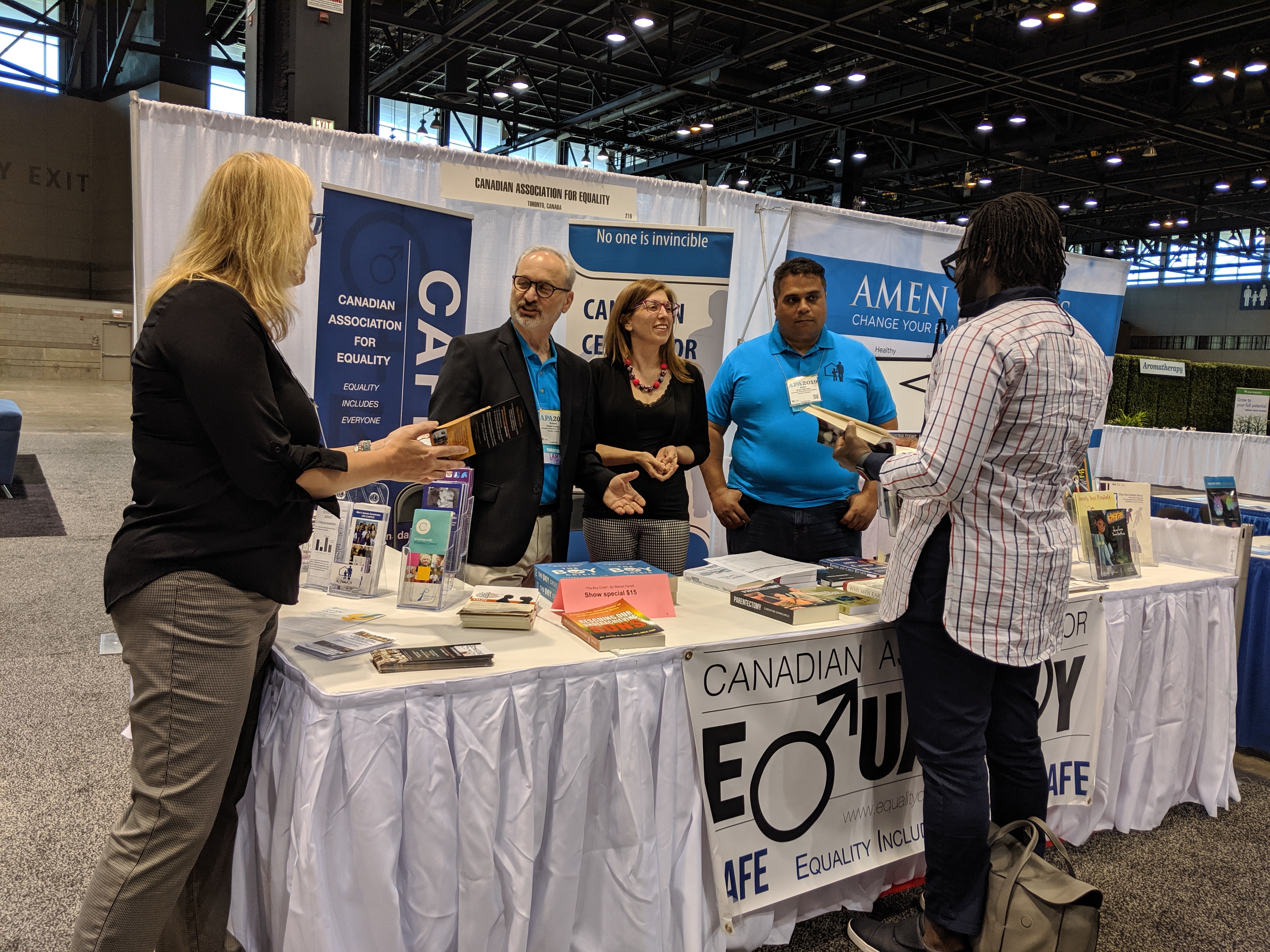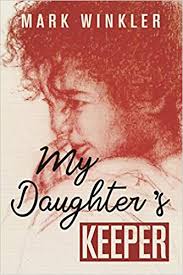 By Edward Kruk, Ph.D., President, International Council on Shared Parenting
By Edward Kruk, Ph.D., President, International Council on Shared Parenting
A groundbreaking event within the field of shared parenting is quickly taking shape, in which for the first time researchers, practitioners and activists in the co-parenting community will be engaged in a facilitated dialogue and collaborative process of problem-solving with researchers, practitioners and activists in the arena of family violence and woman abuse.
My work in the field of co-parenting has spanned over a quarter century. It started with a research question, the focus of my doctoral dissertation, of why so many fathers disengage from their children’s lives after separation and divorce. The findings of my research led me to challenge the many myths and stereotypes surrounding non-residential parents. My main focus since then has been the promotion of shared parenting as in the best interests of children and families.
Much of my time today is devoted to the International Council on Shared Parenting, of which I am president. The Council is unique in that it studies shared parenting from the perspective of children, and includes three groups of members: academic scientists, child and family professionals, and members of civil society. We have held numerous national and international conferences, which have led to a series of research-based consensus statements on shared parenting as in the best interests of the great majority of children and families, which have served as the foundation of family law reform efforts in several counties, including the Council of Europe resolution that shared parenting be established as the foundation of family law in member states.
The Fifth International Conference on Shared Parenting will be held at the University of British Columbia in Vancouver on May 29-June 1, 2020. The theme of the conference will be the Intersection of Shared Parenting and Family Violence. The importance of this theme is underscored by the fact that because shared parenting is contraindicated in situations of family violence, legislators have been reluctant to legislate a presumption of shared parenting, assuming (incorrectly) that co-parenting arrangements would become the norm in situations of violence and abuse. Family violence remains a major obstacle in the establishment of shared parenting as the foundation of family law around the globe, and the conference aims to address issues surrounding family violence while at the same time exploring the feasibility of a rebuttable legal presumption of shared parenting which fully takes on board the concerns of family violence specialists.
 Proponents of a legal presumption of shared parenting recognize that any legal presumption of shared parenting must be rebuttable in cases of family violence. At the same time, removing a loving parent from the life of a child by means of sole custody and primary residence orders is itself a form of family violence; and turning a blind eye to parental alienation and the forced removal of loving parents from their children’s lives is also a form of family violence.
Proponents of a legal presumption of shared parenting recognize that any legal presumption of shared parenting must be rebuttable in cases of family violence. At the same time, removing a loving parent from the life of a child by means of sole custody and primary residence orders is itself a form of family violence; and turning a blind eye to parental alienation and the forced removal of loving parents from their children’s lives is also a form of family violence.
Vancouver 2020 will provide an opportunity for leading scholars and international experts in these two fields of scholarship–shared parenting and family violence–to participate in a facilitated dialogue with the goal of developing policies, guidelines and procedures in regard to parenting and co-parenting after separation in the context of family violence. This will include discussion of both a rebuttable legal presumption of shared parenting and a rebuttable presumption against shared parenting in situations of family violence. The conference will thus be of interest to both academic scholars and family professionals, but also to parents and the general public, concerned with the question of the best interests and well-being of children and parents after separation, as well as to those concerned with the question of the best interests and well-being of children and parents exposed to family violence in the context of parental separation. The conference will bring together leading figures in both fields and provide an opportunity for dialogue and the development of specific practice and policy guidelines with respect to a wide range of issues, including:
- the education and training of family professionals helping families develop parenting plans after separation in the context of family violence: what education and training are necessary for divorce professionals? What standards of practice and qualifications should be put in place with respect to education and training in family violence?
- screening for family violence: screening and a rebuttable presumption against shared parenting in cases of family violence; timing of screening; separate initial meetings between parents; safety measures; voluntary agreements; fairness and ability to negotiate parenting arrangements.
- safety and specialized procedures: planning for safety; safety at every stage of the family separation process; safety and specialized interventions; safety and a rebuttable presumption against shared parenting.
- alternatives to shared parenting in situations of family violence: children and safety; abused spouses and safety; protocols in the context of family violence.
The leading figures in both shared parenting and family violence will be making plenary and workshop presentations at the conference, including a free forum to which members of the public will be invited to hear the conclusions of the conference. I invite all members of NPO to join us at this groundbreaking event, which will proceed from both a child-focused and a gender equality perspective. It will lead to the development of best practices and more enlightened laws and policies in the best interests of both children and parents after separation, particularly when family violence is an issue of concern.
We very much look forward to seeing you in Vancouver on May 29-June1, 2020, for the Fifth International Conference on Shared Parenting! vancouver2020.org










 August 15, 2019 by Robert Franklin, Esq.
August 15, 2019 by Robert Franklin, Esq. 
 August 14, 2019 by Ginger Gentile
August 14, 2019 by Ginger Gentile
